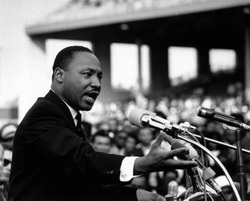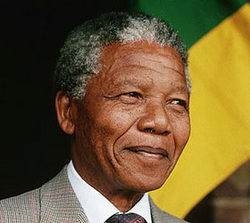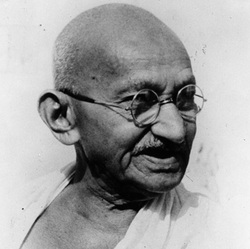
Since the 1960s rights for woman and African Americans have
greatly changed. Although blacks
had been freed from slavery in the 1860s they still faced social, economic and
political differences during the 1960s.
In 1954 the movement towards segregation began under the ruling of the
Supreme Court. Martin Luther King
was a prominent leader in bringing Civil Rights for the black people of the
United States. There was also
Malcolm X who represented the black Muslims of the United States however, he
felt that violence was the only way to reach his goals. Kennedy and Johnson were the presidents who are associated with the greater move to equality. The
movements for equality slowed down as more changes were made towards equality during the 1970s. Equality now exists in the United States. The
current president of the United States is African American. As for women they had been given the right to vote long before the 1960s but there were still social and economic inequalities. Now days women have opportunities to earn what men do by educational opportunities and even the medical advancement of birth control. Countries such as
Israel, Great Britain and India have all had female leaders at some point in
time. In the United States women
and men have equal opportunities.
In the United States and in many areas of the world great changes have
been made in terms of human rights for different groups.
greatly changed. Although blacks
had been freed from slavery in the 1860s they still faced social, economic and
political differences during the 1960s.
In 1954 the movement towards segregation began under the ruling of the
Supreme Court. Martin Luther King
was a prominent leader in bringing Civil Rights for the black people of the
United States. There was also
Malcolm X who represented the black Muslims of the United States however, he
felt that violence was the only way to reach his goals. Kennedy and Johnson were the presidents who are associated with the greater move to equality. The
movements for equality slowed down as more changes were made towards equality during the 1970s. Equality now exists in the United States. The
current president of the United States is African American. As for women they had been given the right to vote long before the 1960s but there were still social and economic inequalities. Now days women have opportunities to earn what men do by educational opportunities and even the medical advancement of birth control. Countries such as
Israel, Great Britain and India have all had female leaders at some point in
time. In the United States women
and men have equal opportunities.
In the United States and in many areas of the world great changes have
been made in terms of human rights for different groups.


 RSS Feed
RSS Feed